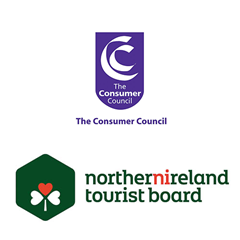The arm’s length reviews
 agendaNi analyses the implications of the Consumer Council and Tourist Board reviews.
agendaNi analyses the implications of the Consumer Council and Tourist Board reviews.
The future of two well-known public bodies has come under scrutiny as the Department of Enterprise, Trade and Investment (DETI) reviews how its policies are delivered. The department oversees four public bodies:
• Invest NI;
• the Health and Safety Executive;
• the Consumer Council; and
• the Northern Ireland Tourist Board.
Invest NI has the largest resource budget (£129 million this year) but has not been reviewed as its work is strategically important for the economy. All national and devolved administrations across the British Isles have economic development agencies.
The Health and Safety Executive for Northern Ireland is entirely separate from the Health and Safety Executive which covers Great Britain. While there is a case for merging the two organisations due to their similar role, this is not legally possible as health and safety policy is a devolved matter.
DETI commissioned an efficiency review of the Consumer Council in October 2012, led by former civil servant Paul Simpson. The review questioned the council’s value for money as it handled 4,500 enquiries per year with a budget of £2.5 million. The voluntary body Citizens Advice received 200,000 enquiries and operated with a budget of £6.4 million. Its government subvention stood at £1 million.
The review concluded that the council should be abolished with its enquiries, complaints, consumer education and money management services transferring to Citizens Advice. However, it also said that the Minister should be able to remove these powers if necessary, which suggests less independence.
The future of the Consumer Council was in doubt between last October, when a consultation on its future status started, and the Minister’s final decision which was announced in June. Foster decided to retain the organisation but place it under more scrutiny i.e. agree annual work plans agreed with DETI and the Department for Regional Development. The council holds these departments to account (and sometimes challenges their policies) but DETI says that the work plans are necessary to ensure value for money.
An independent review of NITB started last November and was led by another retired civil servant, John Hunter. The report was published in June and the consultation on its findings closes on 22 September.
This review supported the retention of NITB but said that Invest NI should process tourism grants (as this was part of economic development) and the new councils should have a strong say in how to promote their areas. NITB would also share offices with Invest NI after the lease on its current headquarters ended in 2016. It also envisaged a rebranding, either to Visit NI or Discover NI.
The review called for a shift from traditional advertising towards social media. Research suggested “that the potential tourist takes only a few seconds to reach a decision” although the source for this was not cited and a digital approach may not cater for older tourists.
It is worth noting, though, that the report’s first priority was the publication of a tourism strategy for Northern Ireland. This was drafted in February 2010 but has since been held up by disagreements within the Executive.
The DUP and Sinn Féin differ over how the region should be promoted to tourists. At present, Tourism Ireland promotes the whole island in Great Britain and overseas. This means that NITB and Fáilte Ireland only promote their respective areas within the island of Ireland. Sinn Féin favours a single all-island approach whereas the DUP questions the Tourism Ireland model and wants closer links with Visit Britain.
Hunter also warned that “outbreaks of social unrest” may explain the recent decline in visitors from the Republic. He added that “this points to the need for concerted action on the part of all the organisations involved to promote a safe and secure image”.





